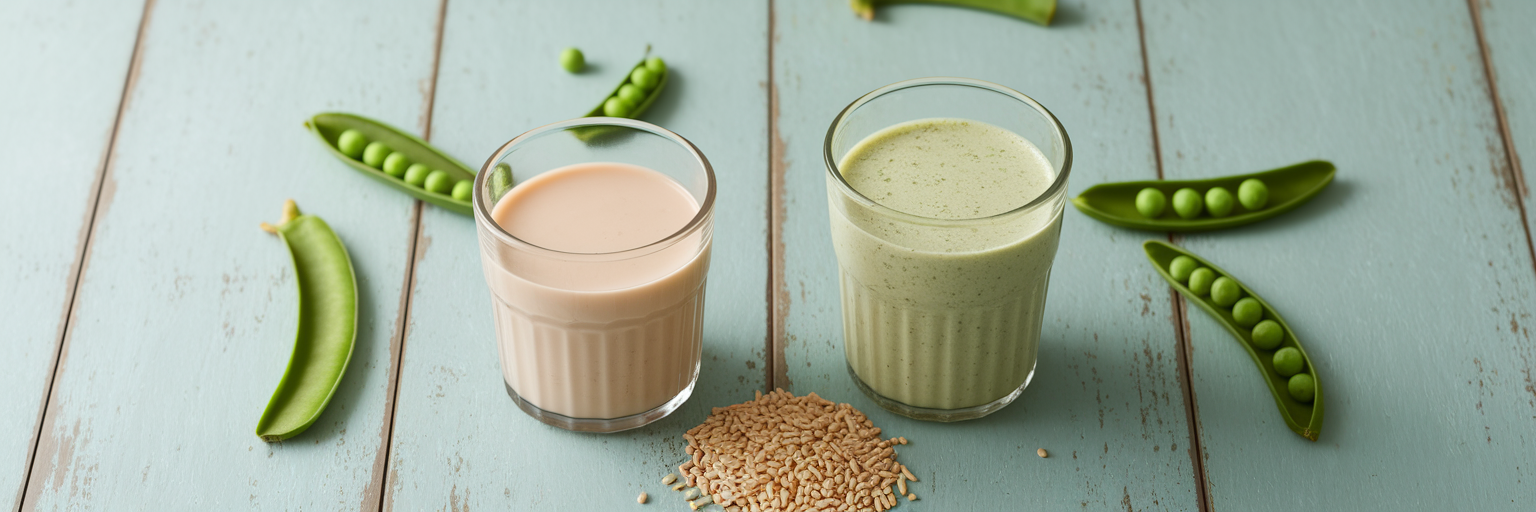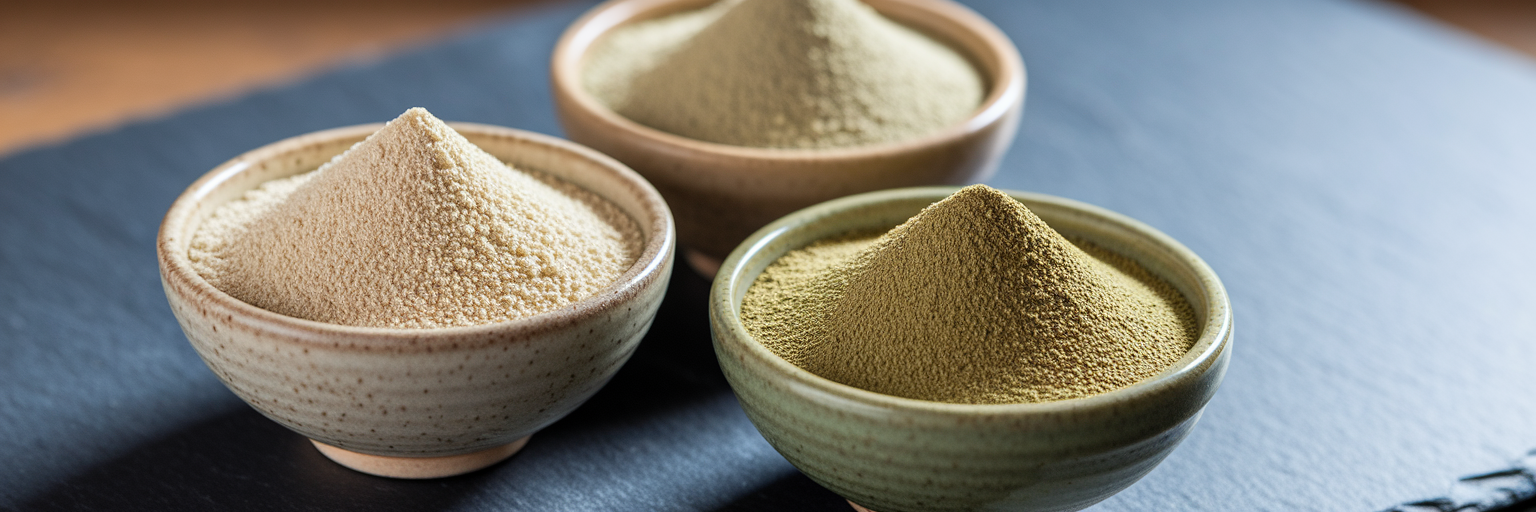Your Guide to Gut-Friendly Protein
You’ve just finished a great workout, and you’re ready for that recovery shake. But then comes the hesitation. The thought of post-protein bloating and discomfort makes you second-guess the whole thing. If that sounds familiar, you’re not alone. Many people find that while protein is essential for their fitness goals, it can be tough on their digestion.
The source of your protein is often the deciding factor between feeling great and feeling weighed down. This is where vegan protein powders come in, not just as an alternative, but as a proactive choice for gut wellness. Plant-based proteins offer more than just muscle-building amino acids. They often come with a bonus: natural fiber that supports a healthy gut microbiome.
This guide will walk you through why plant proteins can be gentler on your system, what to look for in a powder, and how to make sure you’re getting the most out of every scoop. We’ll explore the digestive differences between plant and dairy proteins, identify the best options for sensitive systems, and share simple tips to avoid vegan protein powder bloating for good.
Why Plant and Dairy Proteins Digest Differently

The choice between plant and dairy protein goes beyond taste or dietary preference; it directly impacts how your gut feels. The differences in their composition explain why one might leave you feeling light and energized while the other causes discomfort. Understanding the fundamentals of plant based protein digestion is key to making the right choice for your body.
The Fiber Advantage of Plant Proteins
Plant-based proteins derived from peas, rice, or seeds contain something dairy proteins lack: fiber. This isn't just filler. The soluble fiber in many plant proteins acts as a prebiotic, which is essentially food for the beneficial bacteria living in your gut. A well-fed microbiome is a happy microbiome, contributing to smoother digestion and overall wellness.
The Lactose Problem in Dairy Proteins
Whey and casein are excellent sources of protein, but they come from milk, which means they contain lactose. A significant portion of adults have difficulty digesting this milk sugar, leading to common issues like gas, bloating, and stomach cramps. This isn't just anecdotal; research published in Molecular Nutrition & Food Research confirms that dairy proteins can trigger these digestive issues. For many, choosing a plant-based option is less about avoiding dairy and more about avoiding the discomfort that comes with it.
Bioavailability and Modern Plant Protein Blends
There’s a persistent myth that plant proteins are "incomplete." While a single plant source might be lower in one or two essential amino acids, modern vegan protein powders solve this by blending complementary proteins. Combining pea protein (rich in lysine) with rice protein (rich in methionine) creates a complete amino acid profile that rivals whey. Furthermore, processes like sprouting and fermentation enhance digestibility by breaking down compounds that can interfere with nutrient absorption. While we're focusing on digestion, understanding the full spectrum of options is key, as detailed in our guide to the best protein powders.
| Factor | Plant-Based Protein (e.g., Pea, Rice) | Dairy-Based Protein (e.g., Whey, Casein) |
|---|---|---|
| Primary Digestive Aid | Naturally contains prebiotic fiber | No inherent fiber content |
| Common Irritant | Generally free of common allergens | Contains lactose, a frequent cause of bloating and gas |
| Gut Microbiome Impact | Feeds beneficial gut bacteria | Can be neutral or disruptive for sensitive individuals |
| Processing for Digestibility | Sprouting and fermentation enhance absorption | Isolates and hydrolysates are processed to remove lactose |
This table summarizes the key digestive differences. The data reflects general characteristics; individual reactions can vary based on the specific product and personal sensitivities.
Hidden Gut Irritants in Protein Powders
Sometimes, you switch to a vegan protein powder and still experience discomfort. What gives? Often, the culprit isn’t the protein itself but the other ingredients added to the formula. A clean protein source can be undermined by a long list of additives designed to improve taste, texture, or shelf life at the expense of your digestive peace.
Here are a few common irritants to watch for:
- Artificial Sweeteners & Sugar Alcohols: Ingredients like sucralose, aspartame, and even "natural" sugar alcohols like erythritol and xylitol can be problematic. Our bodies don't fully digest them, so they travel to the large intestine where they ferment, producing gas and causing that familiar vegan protein powder bloating.
- Thickeners and Gums: Gums like xanthan, guar, or carrageenan are used to create a smooth, creamy texture. While generally safe, they can absorb a lot of water in the gut and feel heavy, causing irritation for those with particularly sensitive digestive tracts.
- Fillers and Artificial Flavors: Long, complicated ingredient lists with vague terms like "natural flavors" or "proprietary blends" can hide low-quality fillers. These additives don't contribute to nutrition and can place unnecessary stress on your digestive system.
The most empowering habit you can build is to always read the full ingredient panel, not just the nutrition facts. A shorter, more understandable list is almost always a better sign. Finding a powder with a clean label, like our simple chocolate vegan protein, can make all the difference for your gut.
Top Vegan Proteins for Sensitive Stomachs

If you're looking for the best vegan protein for sensitive stomach, you have more great options than ever before. Different plant sources offer unique benefits, so you can find the perfect match for your digestive needs and fitness goals. Here’s a breakdown of the top contenders.
Pea Protein: The Hypoallergenic Powerhouse
Pea protein has become a go-to for a reason. It’s naturally free from common allergens like dairy, soy, and gluten, making it incredibly gentle on the system. It also boasts an impressive profile of branched-chain amino acids (BCAAs), which are crucial for muscle repair and growth. Its smooth texture and mild flavor make it a versatile base for any shake.
Sprouted Brown Rice Protein: The Gentle Giant
For those who need an exceptionally easy to digest protein powder, sprouted brown rice is a fantastic choice. The sprouting process is key. It activates natural enzymes that break down starches and phytates, compounds that can sometimes interfere with digestion. This pre-digestion step makes the protein and its nutrients much easier for your body to absorb.
Hemp Protein: The Fiber and Omega Champion
Hemp is a nutritional powerhouse. It delivers a solid dose of protein along with a unique combination of both soluble and insoluble fiber, which supports digestive regularity. It’s also a great source of healthy omega-3 and omega-6 fatty acids, which play a role in maintaining a healthy gut lining. Its slightly nutty flavor works wonderfully in smoothies with greens and fruits.
Seed Proteins (Pumpkin & Sunflower): The Nutrient-Dense Newcomers
Don’t overlook proteins from pumpkin and sunflower seeds. These are excellent, gentle alternatives that are also packed with important minerals like magnesium, zinc, and iron. They are easily digestible and tend to have a very clean, mild taste, making them a great option for anyone new to plant-based proteins. Exploring these different types can help you find the perfect fit, and you can see a full range of our clean, plant-based options here.
How to Boost Absorption and Digestive Comfort
Choosing the right vegan protein is the first step. The second is making sure your body can use it effectively. With a few simple strategies, you can enhance absorption, support your gut, and get the maximum benefit from every scoop. Here’s how to improve protein absorption and ensure your shake is as comfortable as it is nutritious.
- Pair Your Proteins: Many of the best formulas already do this for you by blending sources like pea and rice. This simple combination creates a complete amino acid profile, giving your body all the building blocks it needs for efficient muscle repair and utilization.
- Blend with Natural Enzymes: Give your digestion a helping hand by adding enzyme-rich fruits to your smoothie. Pineapple contains bromelain and papaya contains papain, two natural enzymes that help break down protein molecules, making them easier for your body to absorb.
- Look for Fortified Powders: Some modern formulas are designed specifically for vegan protein for gut health by including probiotics and digestive enzyme blends. These additions support your microbiome and help your system process the protein more efficiently, offering an all-in-one solution.
- Add a Dose of Vitamin C: This is especially important for plant-based diets. Adding vitamin C-rich foods like berries, spinach, or a splash of lemon juice to your shake can significantly enhance your body's ability to absorb minerals like iron from plant sources. This isn't just a wellness tip; a study in the journal Nutrients confirms that Vitamin C is a powerful enhancer of iron absorption.
If you need inspiration, here are 3 easy vegan protein recipes you'll actually crave that incorporate these very principles. By being mindful of both your protein source and how you prepare it, you can finally enjoy your post-workout recovery without compromising on digestive comfort.



